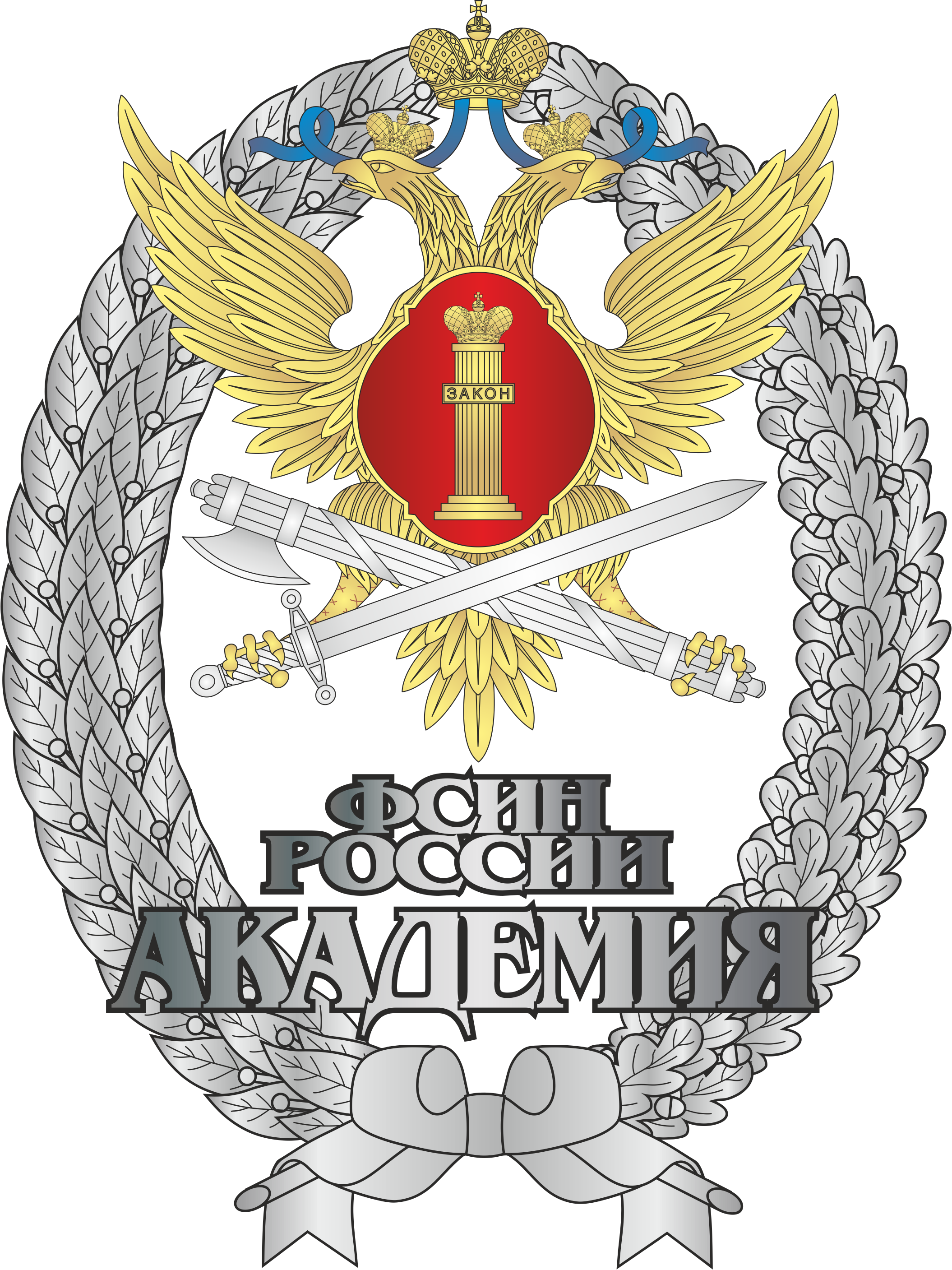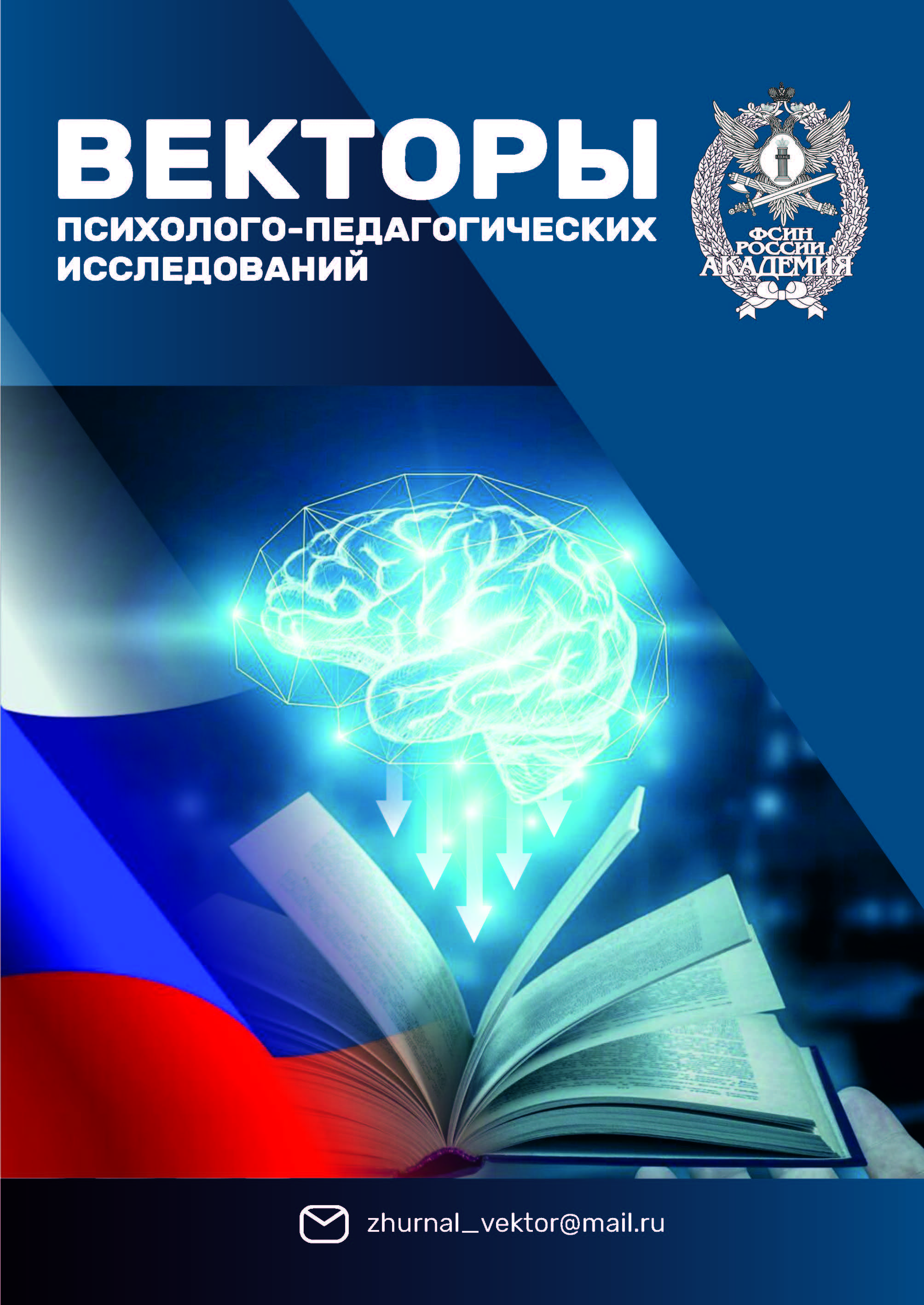The Academy of the FPS of Russia (nachal'nik kafedry yuridicheskoy psihologii i pedagogiki)
Ryazan, Russian Federation
The article examines some aspects of volitional self-control of emotional accusations of male recidivists in maximum security colonies. Knowledge of the psychological consequences of volitional self-control of the emotional consequences of accused repeat offenders is necessary for correctional officers, it makes possible to predict behavior and accusatory behavior when serving sanctions. The empirical study was carried out in correctional colony № 6 of the FPS of Russia in the Kurgan region. When conducting the study, the following psychodiagnostic methods and techniques were used: observation, survey, testing (method for assessing volitional self-control (VSC) by E. V. Eidman and A. G. Zverkov). Statistically significant differences were diagnosed in the “General Self-Control Scale” and “Persistence Scale” indicators. Two groups of convicted repeat offenders have been empirically identified: 1) convicted repeat offenders serving sentences for crimes in the economic sphere; 2) convicted repeat offenders serving sentences for crimes against the person. It has been established that convicts of these groups differ in a number of psychological characteristics. Convicted repeat offenders serving sentences for crimes in the field of economics have sufficiently developed self-control. They are mature, self-confident, have stable emotional state, realistically perceive life situations and are able to plan their future. They have low performance, they compensate for it with an increased level of sensitivity and resourcefulness, low persistence. The convicts of this group are stable to various emotional events, confident in themselves. Convicted repeat offenders for crimes against the person have insufficient self-control. During the day their emotional background is changeable, unstable and self- esteem is low. This group of convicted repeat offenders is more impulsive and short- tempered. They are persistent, able to bring things started to their logical conclusion and achieve their goals. They are characterized by efficiency and endurance. They do not tolerate criticism of themselves in the presence of others.
psychological characteristics, convicted repeat offenders, high-security penal colony, places of imprisonment, volitional self-control, emotional reactions, crimes in the sphere of economy, crimes against the person
1. Ananyev, B. G. 1980, Selected psychological works, A. A. Bodalev et al. (eds), in 2 vols, vol. 2, Pedagogy, Moscow.
2. Ashrapova, R. R. 2016, ‘The role of education in the formation of volitional subjective control and self-control of convicts’, Applied legal psychology, iss. 2(35), pp. 48–52.
3. Vasiliev, I. A. 1984, ‘Emotions in psychology’, Publishing House MSU, Moscow.
4. Vardanyan, Yu. V. & Dorozhkina N. R. 2015, ‘Research of self-control, aggressiveness and anxiety in the structure of self-regulation of convicts’, in International scientific and practical conference with elements of the scientific school for young scientists "51st Eusebian readings" dedicated to the 70th anniversary of Victory in the Great Patriotic War, collection of works, pp. 42–47, Saransk.
5. Vygotsky, L. S. 2005, Psychology of human development, Eksmo, Moscow.
6. Ganishina, I. S. & Kirillova T. V. 2018, Psychology of addictive behavior of convicts, Ulyanovsk.
7. Deev, V. G., Kazakova, E. N., Mikhaleva, I. V. & Napris, A. V. 2001, Fundamentals of psychology of execution of criminal penalties, E. N. Kazakova (ed.), Vologda Institute of Law and Economics of the Ministry of Justice of Russia, Vologda.
8. Zautorova, E. V. 2018, Volitional self-regulation of male convicts held in strict conditions of serving their sentences, Moscow.
9. Zautorova, E. V. & Kevlya F. I. 2020, ‘Features of the emotional and volitional sphere of the personality of convicts serving sentences not related to imprisonment’, in Psychology of the XXI century: challenges, searches, vectors of development, collection of materials, pp. 41–50, Ryazan.
10. Ilyinykh, N. A. 2020, ‘The relationship of volitional self-control of emotional reactions with the level of formation of life-meaning orientations of infected with tuberculosis convicts’, Scientific notes of the P. F. Lesgaft University, iss. 7 (185), pp. 476–480.
11. Seyitmedova, A. M. 2020, ‘Volitional self-control as a factor in preventing suicidal states of probationers’, in Yu. A. Mikhailova (ed.), University science as an integral element of training specialists: XV International Scientific-theoretical. conf. of cadets, students and listeners, Pskov, pp. 160–161.
12. Sobolev, N. G. & Kryukova, E. V. 2014, ‘Psychodynamics of individual typological features and volitional self-control of the personality of minors registered in criminal enforcement inspections’, Bulletin of the Institute: crime, punishment, correction, iss. 1 (25), pp. 51–55.
13. Ushatikov, A. I. & Ganishina, I. S. 2015, ‘Problems of psychological support of innovative activity in the penal system: a retrospective analysis and the current state’, Applied legal psychology, iss. 4, pp. 38–43.
14. Ushatikov, A. I. & Ganishina, I. S. 2015, ‘Psychological typology and classification of convicts held in correctional institutions of the penitentiary system of Russia: history and current state’, International Penitentiary Journal, iss. 4, pp. 76–81.
15. Shatokhina, L. V. & Panina, S. V. 2022, ‘Diagnostics of the volitional sphere of personality of convicts with addiction’, Applied legal psychology, iss. 4 (61), pp. 23–34.









